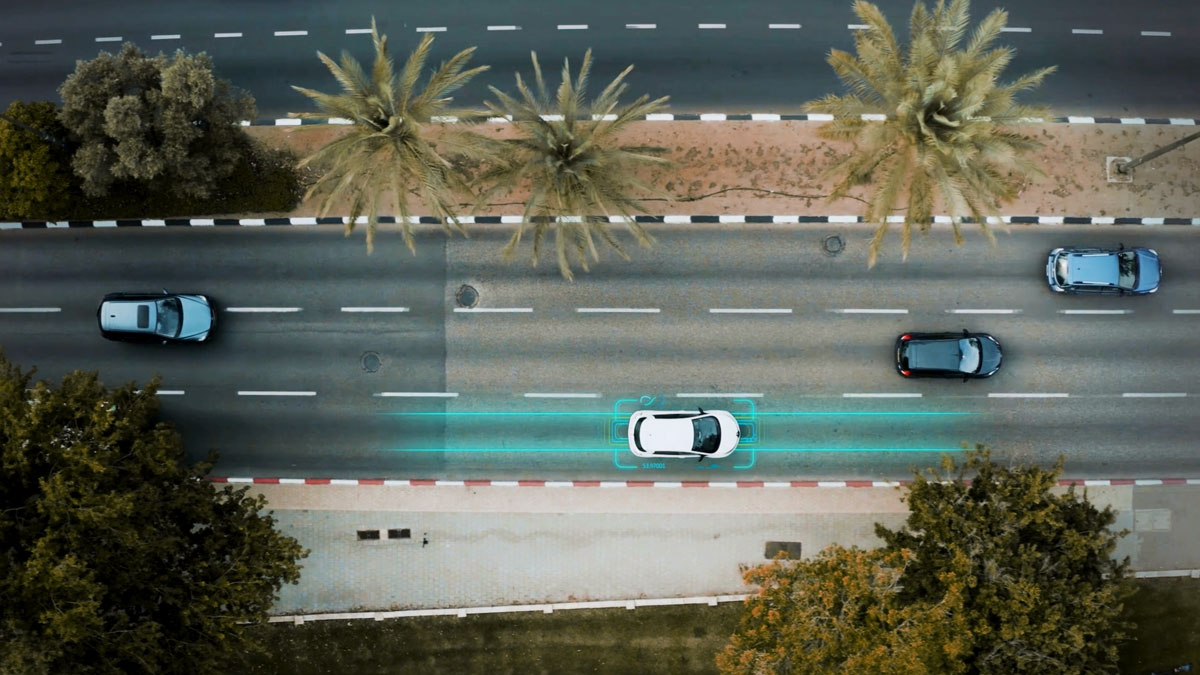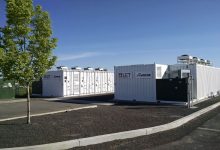ElectReon to Provide Road Charging Technology for a Project Funded by the German Government
ElectReon, which is developing and implementing Wireless Electric Road Systems (ERS) that wirelessly charge commercial and passenger electric vehicles while driving, was selected to provide the technology for eCharge, a project funded by the Roads Innovation Program of the German Federal Highway Research Institute (BASt). The winning consortium includes Volkswagen and Eurovia.
The aim of the project is to develop an economical and functional solution for inductive charging of electric vehicles while driving. The project has received EUR 1.9 million financing from the German Federal Government.
ElectReon will act as a subcontractor providing the project with its leading wireless dynamic charging technology, as well as leading and supporting different project tasks. As part of the project, ElectReon will integrate its wireless vehicle receiver to a Volkswagen electric vehicle to be tested on the Electric Road.
A few subsidiaries of the global Vinci group are part of the consortium – Eurovia Germany will lead the road construction task, the digital enterprise VIA IMC will manage the project, and Omexom will lead the grid connection task. Volkswagen will lead the vehicle task and Braunschweig University will lead the road materials and aging task.
The project will focus on testing issues such as road integrity, connection to a renewable energy source, the billing interface and the systems’ integration with vehicles, as well as analysing different business cases for the German mobility market. The wireless electric road will be built at DuraBASt, the German national road test facility, located near Cologne, Germany.
In addition, the company announced it is establishing a local subsidiary in Germany, in light of the growing support from the German authorities for the advancement of wireless electric road technology. The current project joins the company’s further collaborations in Germany with Eurovia, and with the leading energy corporation, EnBW. ElectReon’s German subsidiary will be headed by Dr. Andreas Wendt, who in his last role led the wireless charging efforts of Toyota in Germany.
“The project aims to ascertain how German road infrastructure could be designed in a more modern way and how a charging facility could be integrated into the asphalt surface,” Enak Ferlemann, the State Secretary in the German Federal Ministry of Transport and Digital Infrastructure, stated.
“Wireless charging, which is already a reality for smartphones, so far is only a vision for e-vehicles. That is why we are now supporting the contactless charging of e-vehicles while driving – and all without overhead lines. This would not only extend the range for all vehicles immensely – from cars to heavy trucks, but also will save the trip to the charging station. It is a very exciting project for us!” concluded Enak Ferlemann.
“Volkswagen relies on e-mobility like no other manufacturer and is consistently working on further technological developments in this area. Inductive charging offers a lot of potential here, as it can simplify the charging process considerably. In addition, this technology could, in principle, be used in all vehicle segments from cars to trucks. With this project, we want to understand the technology better and examine its possibilities in comparison to the alternatives,” Dr. Nikolai Ardey, Head of Volkswagen Group Innovation, mentioned.
Accelerating the transition to clean mobility globally
“ElectReon sees Germany as a global leader in fighting emissions from the transport sector and as an entry point to the European and global markets. Being part of this German government funded project will bring us one step closer to decarbonizing transportation in Germany and, ultimately, the world. With the support of our project partners that are global leaders in mobility innovation, we intend to show that wireless dynamic charging is the most holistic and cost-effective solution for charging electric vehicles and can accelerate the transition to clean mobility globally,” Oren Ezer, Co-founder and CEO of ElectReon added.
World’s first dynamic wireless charging of a long-haul electric truck
In January this year, ElectReon has completed the deployment of 1.65 km of a dynamic wireless charging system on a public road in Gotland, Sweden, which is the largest deployment of its kind in the world.
The fully electric long-haul truck was charged by the road while driving at various speeds of up to 60 km/h on a 200-meter electric road segment, with an average transfer rate of 70 kW from the road to the receivers and into the truck’s battery. The system reached stable operation with consistent results, and testing confirmed that snow and ice do not affect the wireless charging capabilities. The company proved the robustness of its proprietary cloud-based software by remotely operating, monitoring, and testing the system from the company’s headquarters in Israel.
In the coming months, following the successful testing on the 200-meter section and given additional approvals from relevant agencies, the ElectReon expects to start operation of the entire road and simultaneously charge an electric bus on the same electric road. The wireless charging system will be further calibrated to enable the increase of power and a local truck operator will regularly operate the truck in order to conduct further tests.
The wireless charging of the electric truck on a public road is a significant milestone in the commercialization of the wireless electric road technology developed by ElectReon. This is also a significant milestone towards meeting the preliminary requirements for applying for the large-scale pilot of the construction of a wireless Electric Road planned by the Swedish Road Administration (Trafikverket) of approximately 30 kilometres designed for dynamic charging of electric trucks while driving.
In Tel Aviv, the company completed the deployment of 700 meters of dynamic charging segments on a road in Ramat Aviv and a wireless charging station at the Tel-Aviv University train station bus terminal. This represents a significant achievement as the company deployed the segments in a short time frame, minimizing interruption to the public and illustrating the suitability of its technology for commercial-scale deployment in public roads.







